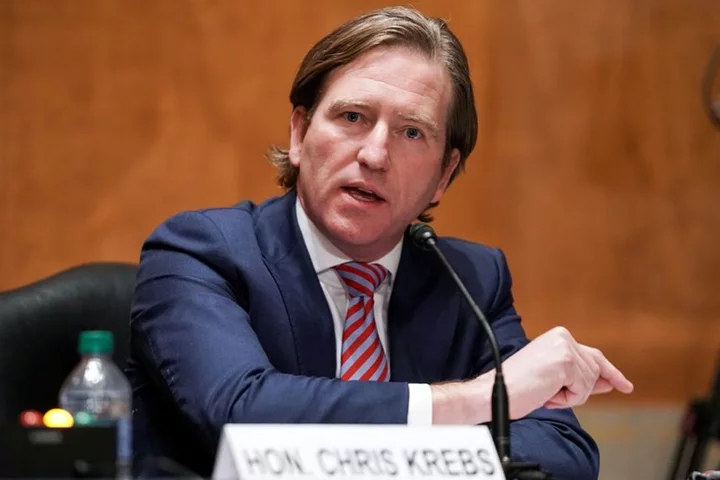
US special counsel probes Trump firing of then-top cybersecurity official -NYT
(Adds dropped word in second paragraph to clarify Krebs was interviewed) WASHINGTON A U.S. special counsel investigating former
2023-06-01 01:20
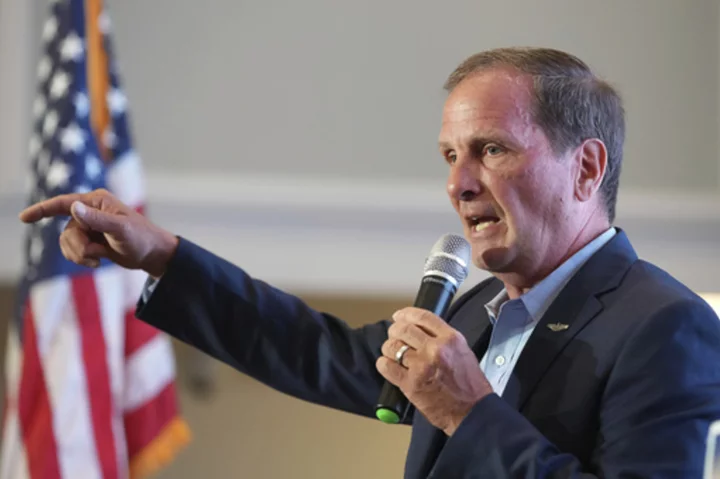
Chris Stewart, 6-term Utah Republican, resigning from Congress
Utah Republican Chris Stewart is resigning from his seat in the narrowly divided U.S. House of Representatives
2023-06-01 00:56
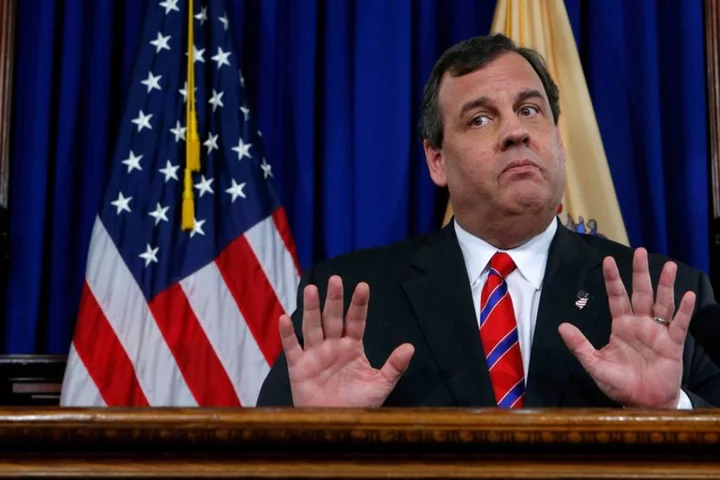
Factbox-Who is Chris Christie, Republican 2024 presidential hopeful?
By Joseph Ax Former New Jersey Governor Chris Christie, who backed Donald Trump's successful 2016 presidential campaign but
2023-05-31 22:54
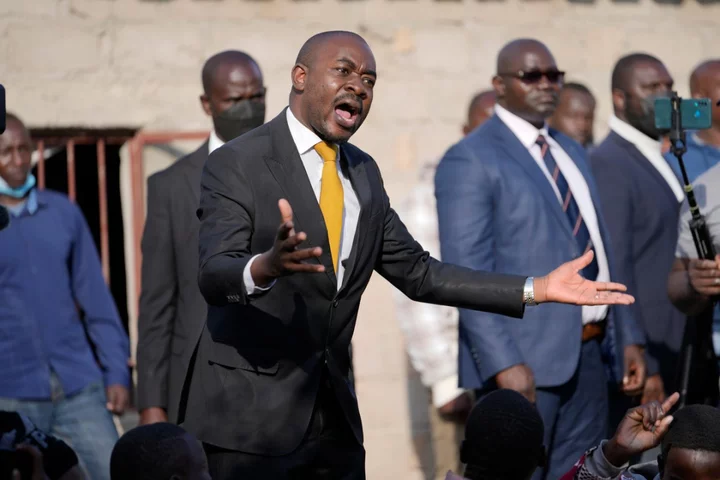
Zimbabwe's Mnangagwa sets election date as Aug. 23
Zimbabwe's national elections will take place on Aug. 23, the country's president announced Wednesday. The vote is expected to be another closely watched affair in a country with a history of violent and disputed elections. The announcement through a government gazette also set Oct. 2 for a presidential runoff vote if required. Opposition parties have already made allegations of violence and intimidation against their supporters in the buildup to the elections, and human rights groups have said President Emmerson Mnangagwa is silencing criticism. The southern African nation has only had two leaders since it gained independence from white minority rule in 1980. Robert Mugabe led Zimbabwe for 37 years until he was removed and replaced by Mnangagwa in a coup in 2017. Mnangagwa had served as a vice president under Mugabe. The last general election was held in 2018, nearly a year after the coup. Once a close ally of Mugabe, Mnangagwa, 80, has tried to present himself as a reformer despite accusations that he is even more repressive than the man he helped remove from power. Mnangagwa is expected to face a strong challenge from Nelson Chamisa, the 45-year-old leader of the main opposition party, Citizens Coalition for Change. Chamisa narrowly lost to Mnangagwa in 2018, with the Constitutional Court dismissing his claims of election rigging. Apart from the presidency, the election will also decide the composition of the 300-seat parliament and close to 2,000 local council positions. Mnangagwa’s ZANU-PF ruling party and the government have denied allegations of violence and intimidation by ruling party activists and security forces. But rights groups have accused Mnangagwa’s government of intimidation and of suppressing any criticism and opposition amid a currency crisis and a sharp rise in food prices. Zimbabwe has faced severe economic problems for years and has been under U.S. sanctions for two decades over human rights abuses. Mugabe died in 2019. Chamisa said this week he is ready for the election, but has made allegations of voting roll irregularities. Compounding that, Chamisa said his party is at a disadvantage because Mnangagwa and ZANU-PF control state–run media and hold sway over the police, other security forces and the judiciary, which are used to clamp down on dissent. On Wednesday, Fadzayi Mahere, spokeswoman for the Citizens Coalition for Change, tweeted: “No govt that’s popular & knows it’s winning behaves like this. They’re terrified cause, like all of us, they know that ZANU PF can never win a free & fair election in Zimbabwe." "That’s why they’re trying to stitch & doctor the voters’ roll but it won’t work. People want change.” Opposition parties had accused Mnangagwa of delaying announcing a date for the election that must take place before the end of August. Mnangagwa's announcement came a day after Zimbabwe's foreign ministry summoned the United States’ deputy ambassador over a series of tweets the embassy sent calling for a peaceful election. The ministry accused the embassy of “election-related social media posts bordering on activism and meddling in Zimbabwe’s internal affairs.” Deputy Ambassador Elaine French was called to a meeting with Zimbabwe foreign affairs acting permanent secretary Rofina Chikava on Tuesday following the posts on the U.S. Embassy's official Twitter account. The Zimbabwe foreign ministry said it had a particular issue with a May 26 tweet that called for Zimbabweans to “Register to vote and make sure your voice is heard.” Another tweet from the embassy said “Zimbabwe’s constitution grants citizens the right to choose their representatives in legitimate, credible, & peaceful elections.” The foreign ministry said the tweet urging people to register to vote was against diplomatic protocols. “We stand by our recent social media posts calling for peace during the election season," U.S. Embassy spokeswoman Meg Riggs said in a statement. “Elections are a part of a functioning democracy.” ___ More AP Africa news: https://apnews.com/hub/africa Read More Ukraine war’s heaviest fight rages in east - follow live Charity boss speaks out over ‘traumatic’ encounter with royal aide Zimbabwe releases prisoners in amnesty, reducing overcrowding AOC warns Elon Musk is ‘testing waters’ to interfere in 2024 election Nevada Republican governor approves abortion protections in rare cross-party move
2023-05-31 21:45
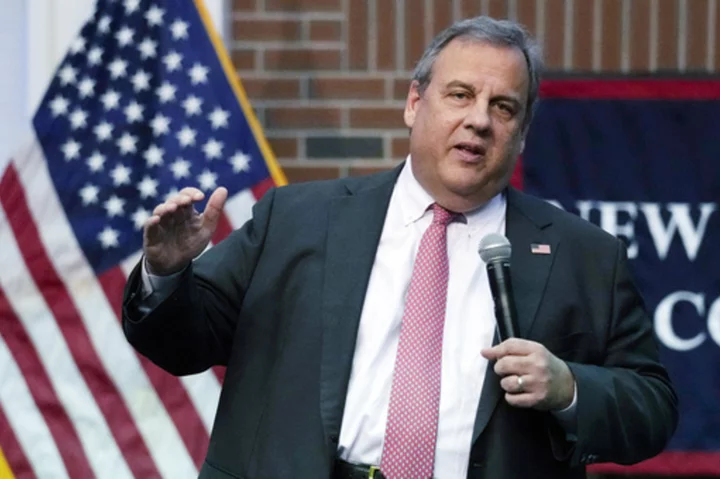
Ex-New Jersey Gov. Chris Christie planning to launch GOP presidential campaign next week
Former New Jersey Gov. Chris Christie is expected to launch his second campaign for the Republican nomination for president next week in New Hampshire
2023-05-31 20:48
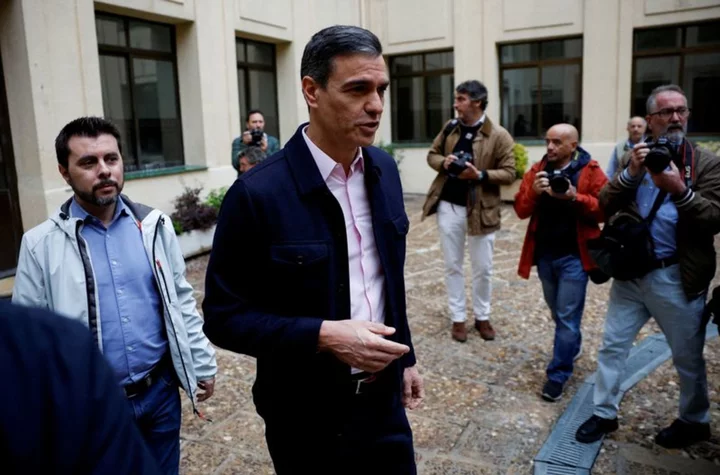
Spain risks following US, Brazil in lurch to far-right, PM says
By Emma Pinedo and Joan Faus MADRID/BARCELONA Spain could follow the U.S. and Brazil in lurching to the
2023-05-31 20:24
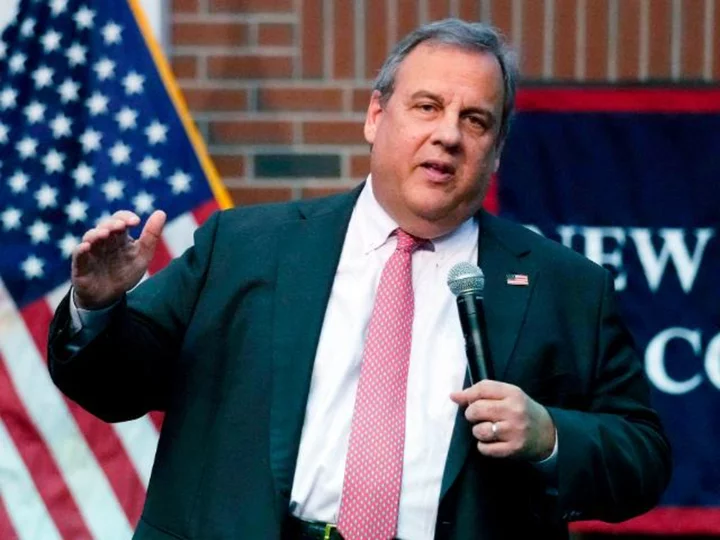
Christie to announce 2024 bid next Tuesday in New Hampshire
Former New Jersey Gov. Chris Christie plans to announce his candidacy in the 2024 race on Tuesday, according to three sources familiar with his plans.
2023-05-31 19:46
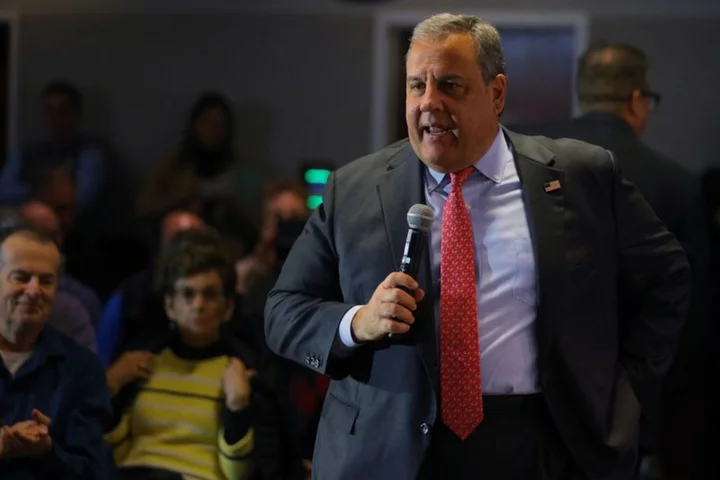
Former NJ governor Chris Christie expected to announce run for president -Axios
WASHINGTON Former New Jersey governor Chris Christie is expected to announce a bid for the 2024 Republican presidential
2023-05-31 19:25
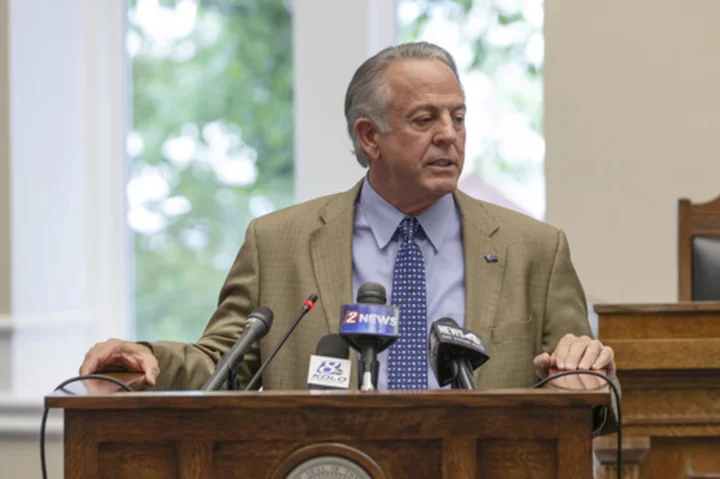
Nevada Republican governor approves abortion protections in cross-party move
Republican Gov. Joe Lombardo has signed a bill enshrining existing protections for out-of-state abortion patients and in-state providers
2023-05-31 17:46
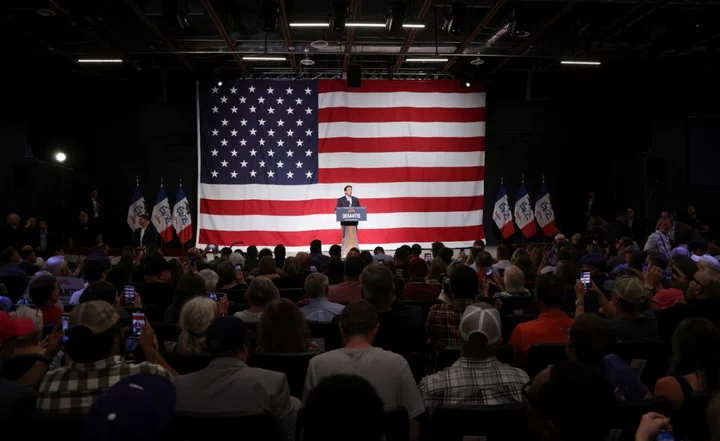
Culture wars, parenting and tiptoeing around Trump: Five takeaways from Ron DeSantis’s 2024 launch
Ron DeSantis is officially running for president, and on Tuesday landed in the early caucus state of Iowa to give voters a preview of what his campaign will look like. What that shaped up to be in Des Moines was largely what analysts had expected for months: a bid for higher office that leans into Republican culture war battles and as far away from direct confrontation with the incumbent de facto leader of the party, Donald Trump. Mr DeSantis spoke to an enthusiastic crowd that cheered enthusiastically at his vows to score major wins on those issues like LGBT+ rights and “critical race theory”, but less for his veiled shots at the former president, who was never mentioned by name for obvious fear of losing the audience. The governor instead heaped his criticism on Joe Biden and the administrative state which he hinted that Mr Trump had failed to rein in. He was joined by his wife, Casey, and a handful of state-level elected officials — a preview of the battle that is no doubt shaping up in the state where the governor will have his first (and potentially only) real chance to prove that he can credibly compete with the former president, who has turned his fire wholly on his top rival in recent weeks amid continued polling showing the governor falling further behind him. Here are five things you should remember about Tuesday night’s rally going forward into the 2024 primary season: 1. DeSantis was backed by powerful state officials In a clear coup for the DeSantis campaign, the Florida governor charged into his rally on Tuesday backed by both Iowa’s governor and lieutenant governor, Kim Reynolds and and Adam Gregg respectively. To be clear: in a pre-Trump political world, this would be a massive advantage for any candidate to have. Winning the endorsements of the two highest-level officials in state government, let alone at one’s launch rally, is a sign of political dominance that would make any candidate other than Donald Trump think twice about even competing in the state. But Mr Trump is no ordinary opponent, and his continued star power in the GOP far outstrips that of any GOP statewide official — even at home. The former president’s endorsement hasn’t proven to be ironclad, seeing key defeats to opponents of Mr Trump on various sides of the political spectrum in 2022, but it’s fair to say that Mr Trump remains a credible competitor, even perhaps the frontrunner, to win in Iowa regardless of Ms Reynolds and Mr Gregg’s endorsements. 2. The governor won’t touch Trump Mr DeSantis was more than eager to turn his sights on Joe Biden and the actions of his administration during the speech. Not so much for Mr Trump, who was not mentioned by name at all in the governor’s remarks. The desire of Mr DeSantis to avoid a confrontation with the former president might be more convincing, however, had he not indirectly referenced Mr Trump multiple times during his remarks — including at one moment when he asserted that four years in office was simply insufficient to rein in America’s bureaucracy. Even George Washington, the governor charged, would be unable to do so in that amount of time. Mr DeSantis’s tone notably changed when speaking to reporters after the event ended — “He used to say how great Florida was... Hell, his whole family moved to Florida under my governorship,” he noted of the former president. But that fire has yet to emerge in front of those who actually decide elections: voters. The governor therefore appears to be largely stuck in limbo; unwilling or unable to land a blow against Mr Trump when it counts, but more than cognisant of his need to do so. 3. Culture wars rise to the top The greatest targets for criticism on Tuesday were not Mr Biden or his team in the White House at all. Mr DeSantis reserved his harshest tone for so-called “woke” ideologies such as support for LGBT+ rights among public officials and private businesses. He vowed to purge any teachings he deemed remotely “inappropriate” for children from schools, and pledged to do the same to the military and other federal agencies if elected president. This is Mr DeSantis’s true strategy: master the issues that make GOP voters the angriest, and bet that it will propel him not just through a primary race against Donald Trump but to the White House against Joe Biden as well. The governor argued that keeping the attention on these issues and presenting a “positive” alternative to Mr Biden’s vision for America would be their ticket to a victory. 4. Pressure against Republicans on the debt ceiling After Donald Trump came out and said that Republicans in Congress should “do a default” unless they score significant concessions from Democrats in legislation to raise the debt ceiling this week, Mr DeSantis upped the ante further and declared on Tuesday that Republicans should oppose the idea entirely. He railed at the idea of raising America’s debt ceiling by $4 trillion and warned that the GOP’s existing cuts to spending secured in a Saturday-night deal between Joe Biden and Speaker Kevin McCarthy were not enough — America would still be spiralling towards bankruptcy, he asserted. Expect that to raise the stakes for hardline conservatives in Washington this week as Mr McCarthy hopes to whip as many votes as possible in his caucus to support the bill aimed at averting a default on the US’s loans. 5. Leaning on parents in the battle for suburbia One last interesting theme that Mr DeSantis’s rally touched on multiple times was the idea of families and parents having sovereignty over their kids, their local schools, and other entities. It was hardly a surprising point for the Florida governor to tout, given his signing into law several bills affecting the teachings allowed in schools in the Sunshine State which have been decried by the NAACP and other organisations. But it also played into another larger dynamic that has been playing out across the country for several years. The governor’s repeated statements of support for parents and his efforts to draw support from conservative-aligned education activists are part of the greater GOP’s response to a trend that quickened sharply under Donald Trump’s presidency: the blue-ing of America’s suburbs, which have trended steadily Democratic in recent years while the party simultaneously lost its grip on blue collar voters in the Rust Belt and other areas. His strategy mirrors the one pursued by Virginia’s Glenn Youngkin in 2021, which led to Mr Youngkin beating out former Gov Terry McCaulife and becoming the first Republican to win a statewide election in that purple state since 2009. Read More DeSantis hits familiar targets of Fauci, Disney and ‘wokeism’ in first rally as 2024 candidate Ron DeSantis called out for ‘ignoring’ Hollywood beach shooting: ‘He doesn’t care’ LGBTQ people are fleeing Florida in ‘mass migration’ with some fundraising via GoFundMe Ivanka and Jared split over attending Trump 2024 launch – follow live Why was Donald Trump impeached twice during his first term? Four big lies Trump told during his 2024 presidential announcement
2023-05-31 11:57
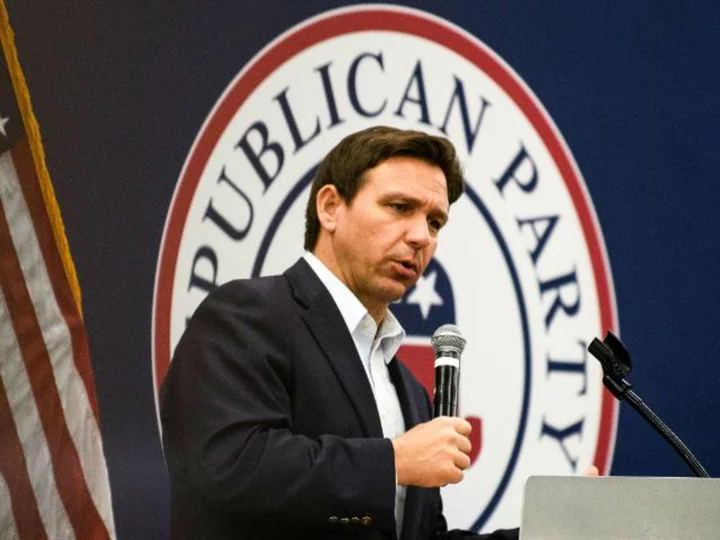
Florida elections officials change campaign finance guidelines, potentially aiding DeSantis allies
Florida officials changed state campaign finance guidelines in a way that could allow allies of Gov. Ron DeSantis to move tens of millions of dollars to a super PAC supporting his 2024 presidential campaign, state records show.
2023-05-31 11:48
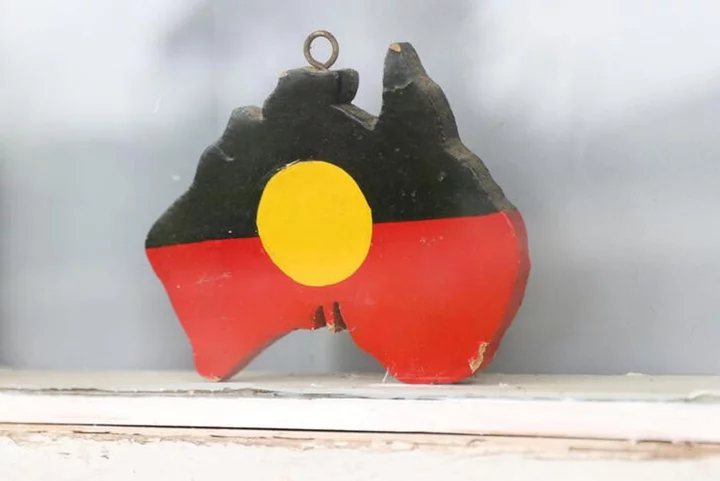
Australia's Indigenous recognition bill passes first hurdle
SYDNEY Legislation to hold a referendum to recognise Australia's Indigenous people in the constitution cleared its first parliamentary
2023-05-31 10:58
